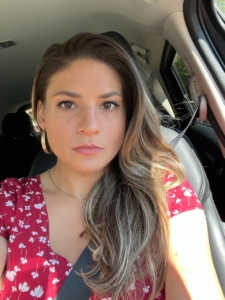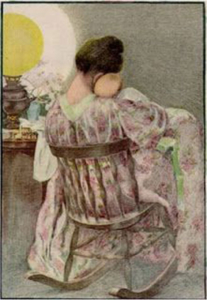
I recently had a weird dream that was all jumbled up, but I recall that the question shrouded me in regret and remorse:
What would you do if you weren’t afraid?
I jumped out of bed, grabbed my journal, and wrote it down.
Then I tossed and turned, asking myself the question over and over again.
It was a fitful night, and I finally gave up trying to sleep and began writing this blog post.
What would I do if I wasn’t afraid?
What would you do?
Rosh Hashanah, a time of repenting and forgiveness, begins at sundown tonight—Friday, September 18.
There it is—that number 18. It always manages to creep up and in, whenever I’m soul searching.
“The days of awe,” also known as the “ten days of repentance,” include Rosh Hashanah, Yom Kippur, and the days in between, during which time Jews reflect on how we cycle through the year, bring it to a close, and begin again.
I don’t know about you, but I could really use a new beginning.
In the old days, when I would attend Temple during the High Holy Days, I would recite the same prayers every year. Year after year, the same tedious prayers. But this year is like no other year.
In thinking about what has happened over the past twelve months, I am regretful that I ever thought the prayers were routine—or worse, boring.
So, I pulled out the prayers today. And yes, they’re the same old familiar prayers, but in a calming, rejuvenating way.
Like all of you, my circumstances have forever changed.
The past twelve months have brought and wrought a harrowing narrative coupled with a Groundhog Day corona-routine that has rocked my world.
I looked back in my journal to remind me of all the things that happened over my past twelve-month life. If only I could go back to a simpler, safer time. If only I could go back to twelve months ago.
Last September 18, I had a Me Too awakening that left me with a glorious sense of acceptance. Finally. And of course, it happened on the 18th.
In October, I drove with my husband to Manchester, Vermont, for a wedding. The wedding was terrific, but it was the hours of driving, exploring, and conversating that reminded me of why I love spending time with my guy.
In November, I flew to London with my daughter, and we had an unforgettable ten days. I had never been to the UK, and will probably never get there again. I wish I would have known that back then.
On December 31, I threw a New Year’s Eve party, and we all cheered and celebrated the coming of 2020 with steak, lobster, and champagne. Happy 2020! Happy New Year!
In January, my grandson turned ten years old! And I recall thinking that it seemed like yesterday that I gently held his tiny swaddled body at the hospital. Back in the day when I assumed that I had all the time in the world to spend with him.
In February, I celebrated my daughter’s birthday in Brooklyn, New York, at an annual Peter Luger’s extravaganza with her two best friends. Porterhouse, thick-cut bacon, and an ice-cold martini, oh my!
And then, well, everything changed.
On March 7, I went into quarantine. I haven’t left my house since.
I remember the date, not because Coronavirus happened, but because it was the birthday of a special someone. A someone I’ve never met and who is a beloved and integral part of what I would do if I weren’t afraid.
On April 3, I corona-celebrated my 67th birthday. How the hell did 67 happen? But the day is seared in my memory forever, not because I turned 67, but because my Aunt Mary and one of my best friends I affectionately called Annie Pannie, were both buried that day.
On May 10, I got to see my daughter for the first time since we celebrated her birthday in February. The best Mother’s Day ever.
On June 21, we spent Father’s Day with two of our grandchildren, albeit socially distant. We hadn’t seen them since the prior November. And wow, how they had grown.
On July 21, I was fired from my executive director job by the deputy mayor of Cedarhurst, New York, because I asked to sit out the promoting and organizing of the annual summer Sidewalk Sale, which in the past years brought thousands of people to the shopping village. Sorry, not sorry, but I didn’t see anywhere in my job description that it was okay to kill people.
In August, I celebrated my 21st wedding anniversary with my husband corona-style, i.e., I warmed up whatever leftovers I had in my fridge, followed by a two-hour television binge of Married at First Sight.
And now, here we are on September 18, 2020.
I’m contemplating what I would do if I weren’t afraid—to reach out, and ask a most treasured person for their forgiveness.
I recently read that in asking for forgiveness, we often overlook the balance between the one who asks for forgiveness and the one who forgives.
I find it difficult to forgive myself for the mistakes I’ve made. And even though I recognize that I’m a work in progress, I continually beat myself up over events I wish I could go back and change.
I desperately want a do-over. A chance to make things right and put the mistakes and regrets behind me and out of my life forever.
I would ask for a second chance—that’s what I would do if I weren’t afraid.
Don’t get me wrong; I’ve asked this person for forgiveness many times.
So many times that I’ve all but given up.
I said, “all but.”
Before I was Jewish, I was Catholic and taught that I was born with original sin. I always took that to mean that I was predisposed to making mistakes—a lot of them.
And I learned over the years that sh** happens. But it’s never too late to make amends.
I’ve personally given plenty of loved one’s numerous chances. Some took full and loving advantage, and others did not. But I don’t regret forgiving.
So, I’m going to ask for forgiveness, even though I’m afraid.
And I know that if I’m forgiven—which I probably won’t be—we will never be able to get back to the way we were. Asking and receiving forgiveness doesn’t mean all is erased.
I’m not naïve.
I know that if I’m forgiven, it will never eliminate the anguish of the injury or the memory of the pain I caused. I’m just hoping to break the impasse—to unbreak two hearts.
And tonight, when I light the Sabbath candles, I’ll pray for a new beginning. Not just for me, but for all of us.
Because we are in a very dark time, and there is way too much suffering and human wounds out there.
And even though I’m afraid, I will send that email. I won’t call because I know I’ll never get a callback.
I’m hoping, but not expecting a response to my apology.
And until I draw my last breath, I will pray for the courage to keep trying and to never lose hope.
Even though I’m afraid.






